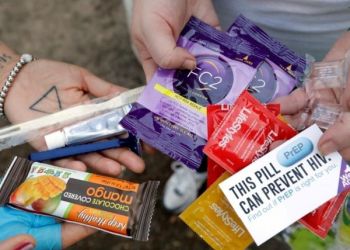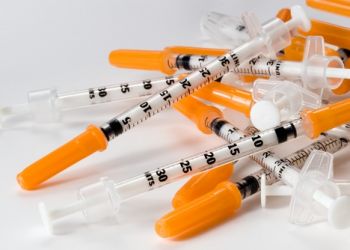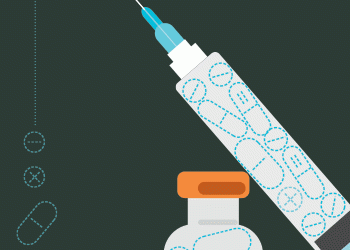Nearly 50 years after President Nixon declared the War on Drugs, the Biden-Harris Administration has signaled their commitment to a public health, evidence-based approach to substance use in the United States. On April 1, the White House Office of National Drug Control Policy (ONDCP) released a statement
on its drug policy priorities, which reflect a remarkable shift from the punitive approach of the past, by focusing on harm reduction and treatment and addressing social determinants of health such as racism, housing, and employment. The priorities are:
- Expanding access to evidence-based treatment
- Advancing racial equity issues in our approach to drug policy
- Enhancing evidence-based harm reduction efforts
- Supporting evidence-based prevention efforts to reduce youth substance use
- Reducing the supply of illicit substances
- Advancing recovery-ready workplaces and expanding the addiction workforce
- Expanding access to recovery support services
At the press conference launching ONDCP’s Year 1 priorities, Acting Director Regina LaBelle indicated that the $30 million allocated for harm reduction services in the American Rescue Plan—the first federal funding stream designated specifically for harm reduction by Congress—will not be subject to the decades-long ban on the use of federal funding for syringes. While the US Department of Health and Human Services (HHS) has not announced how these funds will be spent, this reflects an unprecedented opportunity to build the capacity of syringe services programs (SSPs) in the United States, many of which are operated by local health departments.
According to their statement of priorities, the White House plans to enhance harm reduction by addressing federal and state policy and funding barriers to increasing access to SSPs and the opioid overdose reversal medication naloxone. The White House is also exploring how it can promote research, evaluation, and implementation of best practices, including as they relate to harm reduction education, linkage to care, and drug checking services (i.e., the use of fentanyl test strips). Notably, the Administration also recently announced that federal funding can now be used to purchase fentanyl test strips.
To advance racial equity, the White House plans to undertake a number of activities to better understand the drivers of inequities and identify strategies for addressing the inequitable impact of substance use and its harms. For example, the Biden-Harris Administration plans to identify and address data gaps, establish a research agenda, and develop budgetary recommendations to better meet the needs of underserved communities. They also plan to identify culturally competent and evidence-based practices to advance prevention, harm reduction, and treatment among Black, Indigenous, and other communities of color. The White House will also establish an interagency workgroup group to identify opportunities to reform the criminal justice system, however, the plan does not otherwise seek to address the inequitable impact and harms associated with the criminalization of substance use and specifically the War on Drugs.
The White House also plans to advance equity by reducing barriers and creating employment opportunities for people in recovery, but unfortunately the plan does not explicitly seek to advance employment for people actively engaged in substance use. The White House also seeks to ensure access to culturally and linguistically appropriate services by supporting training of bilingual professionals. The statement also recognizes the importance of recovery support services, and specifically access to housing for people in recovery, and calls for increased engagement of people with lived experience in the development of drug policy. Finally, the White House also recognizes the importance of addressing substance use among young people, however their priorities and related activities focus on primary prevention, with no mention of harm reduction for young people.
To expand access to evidence-based treatment, the White House plans to develop recommendations to modernize policies related to methadone treatment and identify opportunities to remove barriers and create access to buprenorphine prescribing. The White House also hopes to expand access to treatment in correctional facilities and for pregnant people, noting that the fear of child removal should not be a barrier to substance use treatment or prenatal care.
The White House will work with Congress, federal agencies such as HHS, and state, local, and tribal governments to advance their priorities. ONDCP’s priorities reflect a commitment to advancing health equity and evidence-based public health practice, including harm reduction.
For additional information on the safety and effectiveness of harm reduction strategies, check out NACCHO’s Syringe Services Programs & Other Harm Reduction Strategies Policy Statement. For additional information on the role of NACCHO and local health departments in harm reduction, check out NACCHO’s harm reduction webpage.






